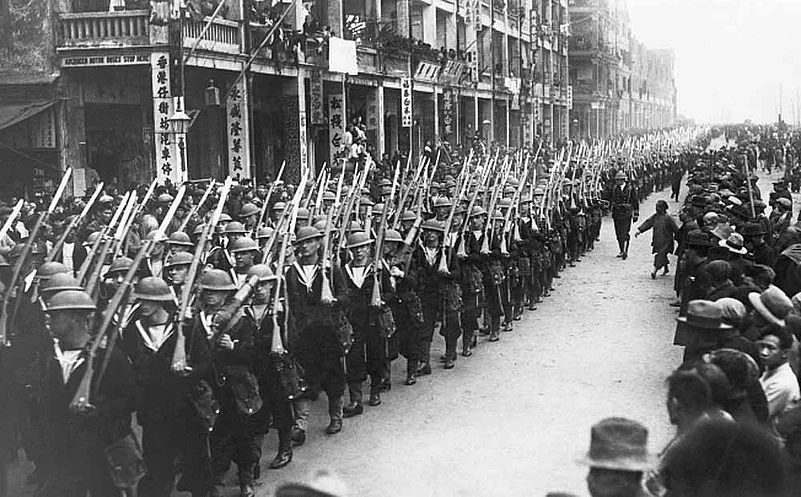Admiration and apprehension go hand-in-hand when you look upon China’s rise as a global power and elevation as the second largest economy in the world. There is all-round admiration for its unprecedented economic growth—which has been at 10 per cent plus for three decades. There are also serious apprehensions among nations on what China’s rise means to Asia and the world at large. Will it be primarily a threat to its neighbours, as signalled by its assertiveness over the important sea lanes in the region? Or does China have the ability and desire to cooperate with other nations and share the responsibility in meeting some of the challenges the world faces?
Oxford historian Rana Mitter joins this debate with his new book, China’s War With Japan, 1937 to 1945: The Struggle for Survival. The eight-year-long war that an impoverished and poor China fought against Japan, one of the most militarised and technologically advanced nations of the time, was a phase of the Second World War that has often been forgotten. Much of the credit for reshaping the world has gone to the three victors—the US, Russia and Britain. But China, which acted as the fourth pole and played an extremely crucial role in wwii, is either ignored or seen as a sideshow in that effort. Yet, for China the war began two years before Britain and at least four years before the US entered it. China’s ability to tie down over 8,00,000 Japanese troops in the mainland at huge personal cost—the near-total destruction of its infrastructure, a death toll of over 14 million and the untold pain of millions of internal refugees spawned by it—played a crucial role in the ultimate victory of the Allied forces.
Through his lucid prose, forceful argument and material gained from archives that have begun to open in recent years, Mitter tells us the story of a war that played a significant role in making modern China. Mitter argues that a new history of China’s wartime experience must take into account of the three-way struggle for a modern China: the Nationalists, the Communists and the collaborationists under Wang Jingwei—a leader who was more prominent than either Chiang or Mao in his time. In the end, Chiang won the war but lost the country to Mao and his Communists, while Wang disappeared in the black hole of history as a traitor.
It is the story of a war that marked a vital step in China’s progression from “semi-colonised victim of global imperialism” to its entry on the world stage as a “sovereign power with wider regional and global responsibilities”. At the same time, the war also created conditions that shaped society and perceptions in ways that persist even to the present day, like the pathological Chinese fear of “disorder”.
In all fairness, it must be cited that some excellent work on this period has already been done by scholars, especially in some recent biographies of Generalissimo Chiang Kai-shek. Much of this archival work became possible as leaders of China in the post-Mao years themselves, decided on a relook at their war history. Cold War imperatives and the Mao-led Communist accession to power had highlighted only the role played by Communist guerillas against the Japanese, while ignoring the Nationalists’ role under Chiang in that war. But a process that started around the ’80s has thrown up material that allows younger generations of Chinese to acknowledge and better appreciate Chiang’s role in shaping their country.
Mitter’s strength lies in telling a compelling, comprehensive story that helps us understand China better, particularly at a time when it looms large on the global stage. As China seeks to convince the world that it is a responsible power, Mitter reminds us of the “tragic, titanic struggle” that the country had waged, not only for its dignity and survival but for the victory of the Allies against some of the “darkest forces that history has ever produced”.
The debate on China is unlikely to end any time soon and sceptics would continue to raise questions about its intentions and its rise. But for those willing to understand China better, this is a book that should not be ignored.


























